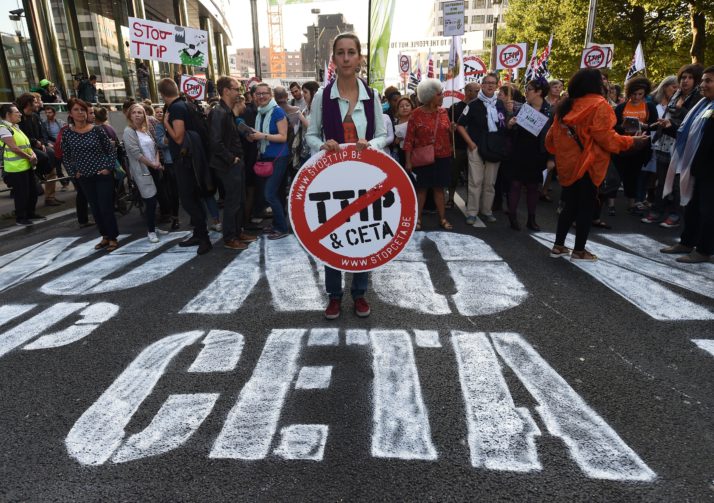Italy Won’t Ratify Canada-EU Trade Deal

Italy will not ratify the European Union’s free trade agreement with Canada, Deputy Prime Minister Luigi Di Maio said on Friday, although Canadian officials played down the threat to the accord, which mostly took effect last year
by Alberto Sisto and Gavin Jones – Reuters
“Soon CETA (the Comprehensive Economic and Trade Agreement) will arrive in parliament and this majority will reject it and it will not ratify it,” Di Maio said at a farmers’ association gathering in Rome.
“If so much as one Italian official … continues to defend treaties like CETA, they will be removed,” added Di Maio, who leads the anti-establishment 5-Star Movement, which governs the country with the right-wing League.
“CETA has already removed tariffs from a large number of goods and widened access to Canadian beef in Europe”
The CETA accord has been provisionally in effect since September. It needs to be approved by all 28 EU member states to fully come into force, and can theoretically be scuppered altogether if an EU member country formally notifies Brussels that it has permanently rejected it.
But Canada says 98 percent of the tariff and trade barrier reductions under the agreement have already taken effect. A Canadian government source played down the Italian remarks, saying they reflected domestic politics and the challenges of managing a coalition of right- and left-wing parties.
The 5-Star/League government, which took office on June 1, vows to take a hard line to defend Italian speciality foods.
Of the 28 European Union countries, Italy has the most food products with PDO (Protected Designation of Origin) and PGI (Protected Geographical Indication) labels.
These include Parmigiano Reggiano cheese and Prosciutto di Parma ham. Under CETA, Canadahas recognized more than 40 Italian PDO and PGI labels out of a total of 292.
CETA has already removed tariffs from a large number of goods and widened access to Canadian beef in Europe and EU cheese and wine in Canada.
The CETA ratification has not yet been scheduled for debate by the Italian parliament and will certainly not be discussed before the August summer recess.
When giving their backing in October 2016, the EU states said that CETA’s provisional application would continue, unless its ratification failed “permanently and definitively” because of a constitutional court ruling or after formal notification from an EU government.
Apart from the small fraction of barriers that remain up, an investment dispute settlement mechanism also will not take effect unless the treaty is fully ratified.
Hosuk Lee-Makiyama, director of trade think-tank ECIPE, said Italy did pose a significant threat to CETA, but the Commission could ultimately take the matter to court, arguing that the EU could continue to apply all parts of the agreement aside from investment dispute settlement.
CETA supporters say it will increase trade between the partners by 20 percent and boost the EU economy by 12 billion euros ($14 billion) a year and Canada‘s by C$12 billion ($9 billion).
Some EU farm associations and critics have expressed concerns about the threat of rapidly rising pork and beef imports from Canada.
Italian agricultural lobby Coldiretti has called CETA “wrong and risky” for the country.
CETA is not the first deal Italy has called into question. It delayed the a trade deal with South Korea over concerns it would affect Italy’s motor industry. A dispute over Australian duties on Italian tinned tomatoes also undermined initial trade talks between Europe and Australia. However, the country did last week back a planned EU trade deal with Japan.












